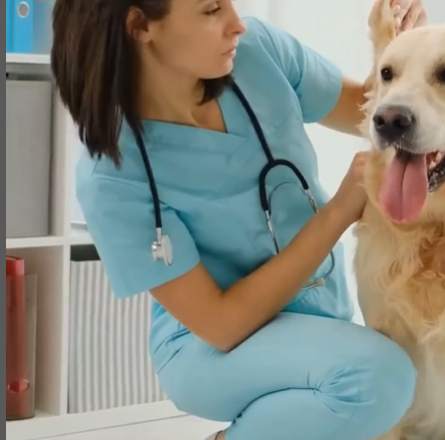Dog Arthritis, Diagnosis, Symptoms And Treatment
Arthritis is a common condition affecting one in five adult dogs. It is a degenerative joint disease that can cause pain, inflammation, and stiffness. Arthritis can develop in any joint, but it is most common in the hips, knees, elbows, and spine.
Symptoms of Arthritis in Dogs
The symptoms of arthritis in dogs can vary depending on the severity of the condition and the joints affected. Some of the most common symptoms include:
- Stiffness, especially after rest
- Lameness or limping
- Reluctance to go up and down stairs or jump
- Difficulty getting up and down
- Loss of muscle mass around the affected joints
- Pain when touched or petted
- Lethargy and decreased activity
- Behavioral changes, such as irritability or aggression
Diagnosis of Arthritis in Dogs
If you suspect that your dog may have arthritis, it is essential to see a veterinarian right away. The veterinarian will perform a physical examination and ask you about your dog’s medical history and symptoms. They may also recommend additional tests, such as X-rays or blood tests, to confirm the diagnosis and assess the severity of the condition.
Treatment of Arthritis in Dogs
There is no cure for arthritis, but several treatments can help manage the pain and inflammation and improve your dog’s quality of life. The specific treatment plan that your veterinarian recommends will depend on your dog’s individual needs.
Non-drug treatments
Some of the most effective non-drug treatments for arthritis in dogs include:
- Weight management: Excess weight puts additional stress on the joints, so keeping your dog at a healthy weight is essential.
- Exercise: Regular exercise helps to keep the joints strong and flexible. However, avoiding activities that stress the joints, such as running or jumping, is essential.
- Joint supplements: There are several joint supplements available that can help to lubricate the joints and reduce inflammation.
- Physical therapy: Physical therapy can help improve range of motion and reduce joint pain and inflammation.
Drug treatments
If non-drug treatments are ineffective, your veterinarian may prescribe medication to help manage your dog’s pain and inflammation. Some of the most common drugs used to treat arthritis in dogs include:
- Nonsteroidal anti-inflammatory drugs (NSAIDs): NSAIDs are the most common medication used to treat arthritis in dogs. They help to reduce inflammation and pain. However, NSAIDs can have side effects, such as stomach upset and kidney problems, so it is essential to use them under the supervision of a veterinarian.
- Corticosteroids: Corticosteroids are powerful anti-inflammatory drugs that can treat arthritis in dogs. However, they can have serious side effects, such as liver damage and Cushing’s syndrome, so they should only be used under the supervision of a veterinarian and as a last resort.
- Pain relievers: Pain relievers, such as tramadol and gabapentin, can manage pain in dogs with arthritis. However, they can also have side effects, such as drowsiness and vomiting, so it is essential to use them under the supervision of a veterinarian.
Other treatments
In some cases, your veterinarian may recommend other treatments for your dog’s arthritis, such as:
- Acupuncture: Acupuncture is a traditional Chinese medicine practice that involves inserting thin needles into specific points on the body. Some studies have shown that acupuncture can effectively reduce pain and inflammation in dogs with arthritis.
- Laser therapy: Laser therapy is a non-invasive treatment that uses low-level lasers to reduce inflammation and pain. Some studies have shown that laser therapy can effectively treat arthritis in dogs.
- Stem cell therapy: Stem cell therapy is a newer treatment that involves injecting stem cells into the affected joints. Stem cells have the potential to repair damaged tissue and reduce inflammation. Some studies have shown that stem cell therapy can effectively treat arthritis in dogs.
Conclusion
Arthritis is a common condition in dogs that can cause joint pain, inflammation, and stiffness. However, several treatments can help to manage the situation and improve your dog’s quality of life. If you suspect that your dog may have arthritis, it is essential to see a veterinarian right away so that they can develop a treatment plan that is right for your dog’s individual needs.
Additional tips for managing arthritis in dogs
- Provide your dog with a comfortable bed to sleep on.
- Use ramps or stairs to help your dog get up and down furniture and into and out of cars.
- Avoid slippery surfaces in your home.
- Massage your dog’s joints gently to help improve the range of motion and reduce pain.
- Monitor your dog’s weight and



